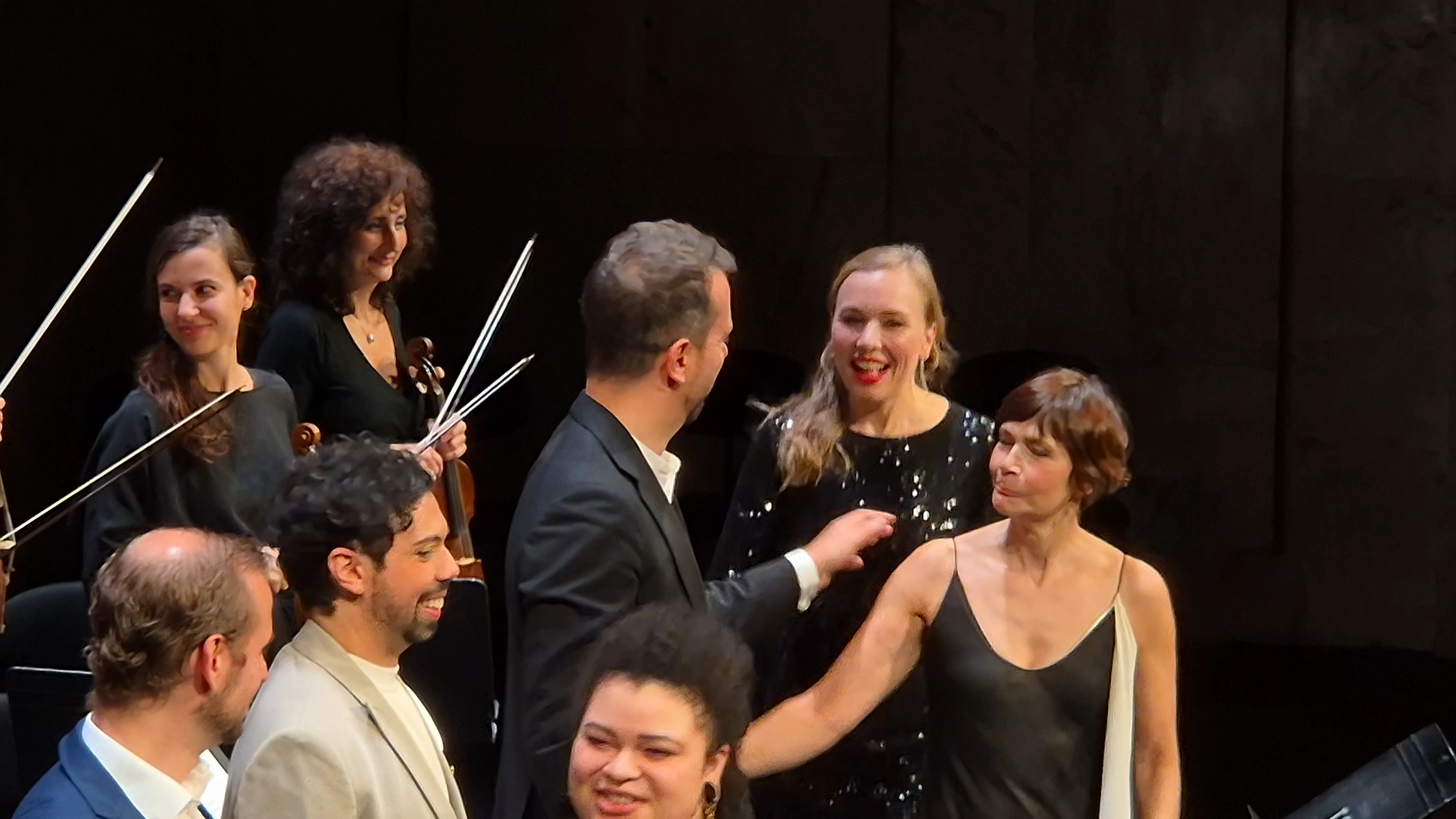Alcina, Georg Friedrich Haendel
Alcina, Georg Friedrich Haendel, Libretto by Antonio Fanzaglia, after Orlando Furioso, by Ludovico Ariosto, (First performance at the Royal Theatre Covent Garden, London April 16, 1735.) Opera en concert, Théâtre des Champs Élysées, December 5, 2024.

Created in London in 1735, during Covent Garden's first season, Alcina, Handel's last great opera, calls for great voices. Following the failure ofAriodante, the opera was a success, but only revived after a long silence in 1957 with Joan Sutherland in the role of Alcina. It boasts a large number of arias, the beauty of which has been celebrated by Baroque lovers since its creation.
The TCE has opted for a female trio, entrusting the role of Ruggiero to Juliette Mey, a mezzo-soprano who recently won an award (she was “Révélation Artiste lyrique” at the Victoires de la Musique classique 2024), with Elsa Dreisig in the title role, who delighted us with her radiant Juliette opposite Benjamin Berheim at the Opéra Bastille. Sandrine Piau's baroque solidity as Morgane is always superb. And we welcome with interest the Il Pomo d'oro orchestra conducted by Francesco Corti, whose Baroque mastery and taste for perfection, which he constantly hones with great performers, are well known.
Handel wrote exceptional music for this paradoxical heroine, based on a libretto as beautiful as a poem, taken from Ariosto's Orlando furioso . The sorceress, who lures men to her island, then transforms them into stones or beasts when they lose their attraction, falls in love with her last lover, Ruggiero, and loses her powers of enchantment because she herself is enchanted. From this reversal of love overcoming power, she experiences, as soon as the fury of tragic heroines prey to betrayal has passed, the haunting pain of an abandoned lover who knows she is guilty: “I have made the gods implacable, heaven no longer listens to me...”. The most beautiful arias of this opera are to be found where Handel makes her lovable in his turn: it is here that his greatest interpreters overwhelm the audience. “ Di, cor mio “ when joy is still present, ” Ah! mio cor ” when she loses it, ‘ Ombra Pallide ’ when despair sets in: so many immortal arias in which Battle, Bartoli, Piau, Yoncheva, Kozena have succeeded one another, each in their own way spinning the melancholy sensuality of this failed destiny, which makes the heroine lovable as she suffers to love - for Handel first of all, who wrote two sparkling arias for her in each act. Elsa Dreisig takes on the role for the first time.
As you leave the theater after the performance, a fascinating image follows you, the only scene of its kind in this opera-concert: Alcina-Elsa singing “ Ah! mio cor! ”, the pinnacle of Handelian vocal writing. Having just learned of her lover's rejection, once the charms she had woven around him had been undone and she herself had become even more deeply entangled, she painfully sings this long aria, which begins with a cry. The call for vengeance is followed by a long silence, then the song gently resumes. Elsa Dreisig then sings with a broken voice that simply flows, radiating in pain as she did in flippancy and cynicism. Then she comes to life, with that crystal soprano she possesses in all things, oscillating between guilty pain and vengeful revolt; but again she falls into loving pain, and finally sags and kneels, forehead to the ground and head in her arms until her voice dies away. How many great voices have seized upon this aria, miraculous in its simplicity, beauty and aptness, to express the heartbreak of this contradiction, imprinting their own accent according to their interpretation of this equivocal heroine who oscillates between love and vengeance? How many operas have portrayed this scene with unforgettable acuity and grace? When this scene comes to an end, the audience is moved by a thunder of emotions.
In fact, quality, accuracy and grace are to be found throughout this long, three-hour performance. Elsa Dreisig shines with her limpid voice, radiant from start to finish without ever forcing her, Sandrine Piau, deploys the vivacity, precision and limpidity of her baroque soprano, Juliette Mey interpreting Ruggiero is just as firm and full of élan in her adjusted mezzo. One wonders why a female trio was chosen, when a man is at stake in this drama. The role was created by a castrato (Giovanni Carestini), and voice and custom mean that we are, admittedly, used to seeing and hearing a woman in this role. We would no doubt have liked to see a “feminine” Ruggiero in a stage version, with the costume and acting helping to create the illusion. But in the concert version, the semblance is not the same, and we regret for a moment that a countertenor did not take on this role. Alex Rosen 's bass is superb, Bruno de Sa 's soprano always excellent, Jasmin White as Bradamante solid, Oronte's tenor a little less luminous.
And what can we say about the accuracy and excellence of the Il Pomo d'Oro ensemble, which we love to hear in the great Baroque works where it is fully at home, where it knows how to bring together voices and instruments, violins, flutes, horns and cellos... Francesco Corti leads it with a sure and sensitive hand.
